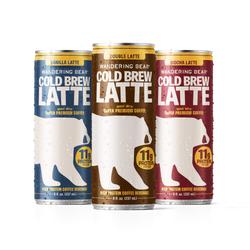Exploring the Effects of Caffeine
![exploring the effects of caffeine [pictured: woman savoring her coffee]](http://wanderingbearcoffee.com/cdn/shop/articles/AdobeStock_115021376.jpg?v=1622148573)
There’s nothing like caffeine to quick-start you out of hibernation. We love it too. We even made a whole company dedicated to it. But it's not just us—it’s the entire world. About 85% of us drink one caffeine-infused beverage per day.
For most of us, coffee is a daily ritual. Wouldn’t it help to know the impact all that caffeine is having on our bodies? Here’s the good news, the less-good news, and what else you should know.
THE EFFECTS OF CAFFEINE (AND COFFEE)
Caffeine puts a pep in our step. We all know that. But how does it work?
The anti-slumber effects of caffeine comes from blocking adenosine receptors in the brain. Huh? That’s a lot of fancy words. What you need to know is that adenosine is a chemical that slowly builds throughout the day, eventually letting us know that we’ve been up too long.
By blocking the receptors, caffeine restores a feeling of broad-daylight clarity. But it’s also a mild stimulant, which has other consequences:
-
Feeling sharper. Admit it. We drink coffee because it works. One study says the effects of caffeine “can provide energy and improve cognitive skills.” (But it’s also possible to overdo it. See the note about headaches below.)
-
Metabolic boosts. Caffeine may help burn fat by giving your metabolic rate up a kick of up to 11%.
-
Reduced risk of Type 2 diabetes. Science has a hard time explaining it. But studies show an inverse association: more coffee and tea means less diabetes. Does this make it a cure? No. But even after controlling for other factors, this study found the association was still there.
CAN CAFFEINE CAUSE HEADACHES?
Yes. But not always the way you might think. The Mayo Clinic says these headaches may be a symptom of going off caffeine. They call them “withdrawal headaches.”
The solution is moderating your consumption, because much like anything you put in your body, caffeine has upsides and downsides. If you have a heart condition, you might want to watch the potential for a rapid heart rate and keep your caffeine consumption low.
But given how popular caffeine is, it’s fair to say it’s one of the most well-tested morning peps on the planet. Just cut back on it if you’re about to enter hibernation.
W. Bear






